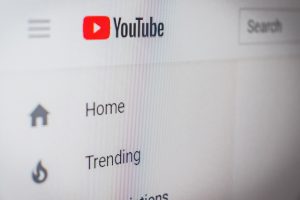Fandom groups have been around for ages, but their culture is immensely different now. Today, even fans of the same artist, book, or movie compete with each other. They battle over who posts on social media, buys the most merchandise and attends the most fan events.
It’s a sad change because joining a fandom is supposed to create a community. But instead, the culture promotes division. The biggest fans tend to pick on the silent or “low-key” fans. It’s as if they expect everyone in the fandom to dedicate their lives to the artist, or they don’t deserve to be called a fan.
This outrageous behavior also created a blight on social media. It’s the so-called “cancel culture.” Fanatics of anything — from pop stars to politicians — enabled this culture and festered it. It often starts by calling out someone popular for a supposed mistake they made long ago or recently. One person would tweet a screenshot of a post, then caption it with personal attacks. They encourage everyone to do the same until the celebrity becomes “canceled.”
This practice is rampant in many fandoms. To uplift their favorites, fans would cancel their competitors. In return, the competitors’ fans would fight back, resulting in a social media war zone. It draws the question: is being a fan of anything still good for us?
Mental Health Effects of Being a Fan
At the most fundamental level, being a fan of something is good for you. Having a favorite singer, book, movie, or actor can make you happy. It makes you look forward to each day because it’s another opportunity to learn something new about your favorite. Consuming their works, like their music, vlogs, TV shows, etc., entertains you and puts you in a good mood.
Your brain function may also improve because of your fandom. Listening to your idol’s music, for example, is shown to benefit your memory. That’s why many people listen to music while they work. Subconsciously, they know that it makes them more attentive.
Being a fan also reduces your stress. When you’re tired from work or school, just thinking about going home and “fangirling” or “fanboying” already diminishes your fatigue. It’s a welcome distraction from anything that strains your body or mind, like working, studying, or training for a sport.
If you experience mental health issues or are diagnosed with depression, your fandom can also help you get better. The sense of belonging you’ll feel with your fandom group can stir the belief that you are deeply cared for. Even if you don’t know your fellow fans personally, you’re able to create meaningful friendships with them.
Buying merchandise, from T-shirts to authentic autographed memorabilia, is good for your well-being as a fan as well. They can remind you of a special time, like a concert. Plus, fan merchandise has value. If you outgrow your fandom, you can sell your merchandise for a good price. If it’s a collectible item, you may sell it for profit or auction it.
Ending the Cancel Culture Through Your Fandom

Fans, particularly the fanatics who support the cancel culture, should remember one thing: Their favorites don’t approve of it. Actors, authors, singers, politicians, and influencers want the cancel culture to end. People who see hate comments daily know the impact of the cancel culture better than anyone. As such, they encourage social media users, especially their own fans, to use their platforms to spread positivity.
Demi Lovato, who had once been a target of haters in 2010, revealed what they had been going through during that time, seven years later. Demi said they were struggling with addiction, depression, and anger issues, leading them to punch their backup dancer for Camp Rock 2. What they aim to teach nowadays is never judge a person based on their mistakes. Instead, extend compassion and realize that you don’t know what they’re going through. Canceling someone only robs them of the chance to learn from their mistakes.
Demi still encounters hate comments today, but they handle them better now. After coming out as non-binary recently, they’re also advocating for gender equality.
If you’re a fan of someone who’s been canceled, don’t fight fire with fire. It may be tempting to retaliate, but doesn’t it feel better to respond with kindness? Think of your favorite celebrities who endure hate comments daily. Instead of canceling their haters, they focus on their fans and form good relationships with their fellow celebrities. So pay them back by being kind to other fandom groups. Respect their favorites, and acknowledge that different figures in the world of pop make the industry more interesting.
As Selena Gomez sang, “kill ’em with kindness.” Ending the cancel culture won’t be possible if you’d fight it with hostility. Smother it with your kind heart, and the fandom culture will be healthy again.





